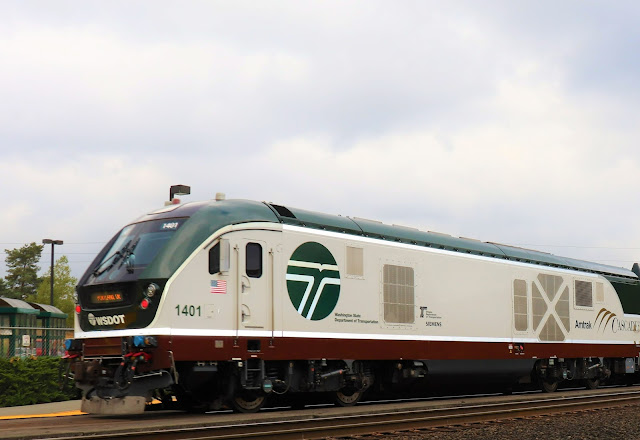On Wednesday, freight railroads had yet to come to terms with union workers, creating chaos across the United States as movement of goods and passengers began grinding to a halt. The companies had been refusing to fully meet the demands of well-meaning workers who could go on strike as soon as Friday, and marching toward a potential lockout anyway, but a tentative deal was struck early Thursday morning. The specter of stranded trains did force Amtrak to preemptively cancel all long-distance train service by Wednesday. State-sponsored Amtrak services and local passenger rail operators were also threatened, including those in the Pacific Northwest.
On Wednesday afternoon, the Washington State Department of Transportation (WSDOT) and Sound Transit issued warnings that Amtrak Cascades and Sounder services could have been suspended as soon as Friday. Both passenger rail providers were scrambling to figure out how to support the riding public if and when rail service were suspended.
While Amtrak Cascades service is operated by Amtrak employees who are not part of the labor dispute, trains mostly operate on tracks owned by BNSF and Union Pacific. “These railroad companies control all train movements in this region and therefore the potential strike of their workers will affect Amtrak Cascades trains,” WSDOT said in a statement. “Our trains cannot operate without the BNSF and Union Pacific dispatchers.”
WSDOT noted that Amtrak was able to secure replacement bus service for Cascades passengers on Thursday if train service were to become suspended mid-trip. That wasn’t the case for Friday or the weekend, however. Passengers were being offered full refunds and free reservation changes for another travel date through October 31st. Regularly scheduled Amtrak Cascades-branded Thruway bus services was still expected to operate.
Unlike Amtrak Cascades, Sound Transit’s Sounder service is directly operated by BNSF union employees and mostly runs on BNSF-owned tracks. In a statement, the agency said that it was “working with its partners to add additional bus service on existing ST Express routes that overlap with Sounder where possible.” Local partner transit agencies are already severely understaffed in the bus operations realm, so it would have been difficult to implement replacement bus service and it could have had knock-on effects to regular bus service operated by those agencies.
Both Amtrak Cascades and Sound Transit have plans to restore additional passenger rail service in the next two weeks. A daily Cascades roundtrip between Seattle and Vancouver, British Columbia is scheduled to start on Monday, September 26th. And Sound Transit plans to restore the final and 13th daily Sounder S Line roundtrip on Monday, September 19th. Fortunately, with the freight railroads labor dispute headed toward resolution, neither of those service improvements appear in doubt now.
Additionally, Amtrak had already taken the step to suspend the Empire Builder and Coast Starlight long-distances services. Empire Builder service was halted on Tuesday while Coast Starlight service was paused on Wednesday. Both routes serve Seattle and Portland with daily trips, but they also serve other large communities in the region like Tacoma, Everett, Olympia, Spokane, and the Tri-Cities. Now Amtrak is trying to restore national long-distance service as soon as possible.
Had a strike or lockout happened, there was some belief that it may not be long-lasting. Under federal law, Congress could intervene to impose a recent Biden Administration-backed resolution plan or order the railroads back to normal operations as negotiations continue.
This story was updated on Thursday, September 15th to reflect evolving situation. This is a developing story.
Stephen is a professional urban planner in Puget Sound with a passion for sustainable, livable, and diverse cities. He is especially interested in how policies, regulations, and programs can promote positive outcomes for communities. With stints in great cities like Bellingham and Cork, Stephen currently lives in Seattle. He primarily covers land use and transportation issues and has been with The Urbanist since 2014.



